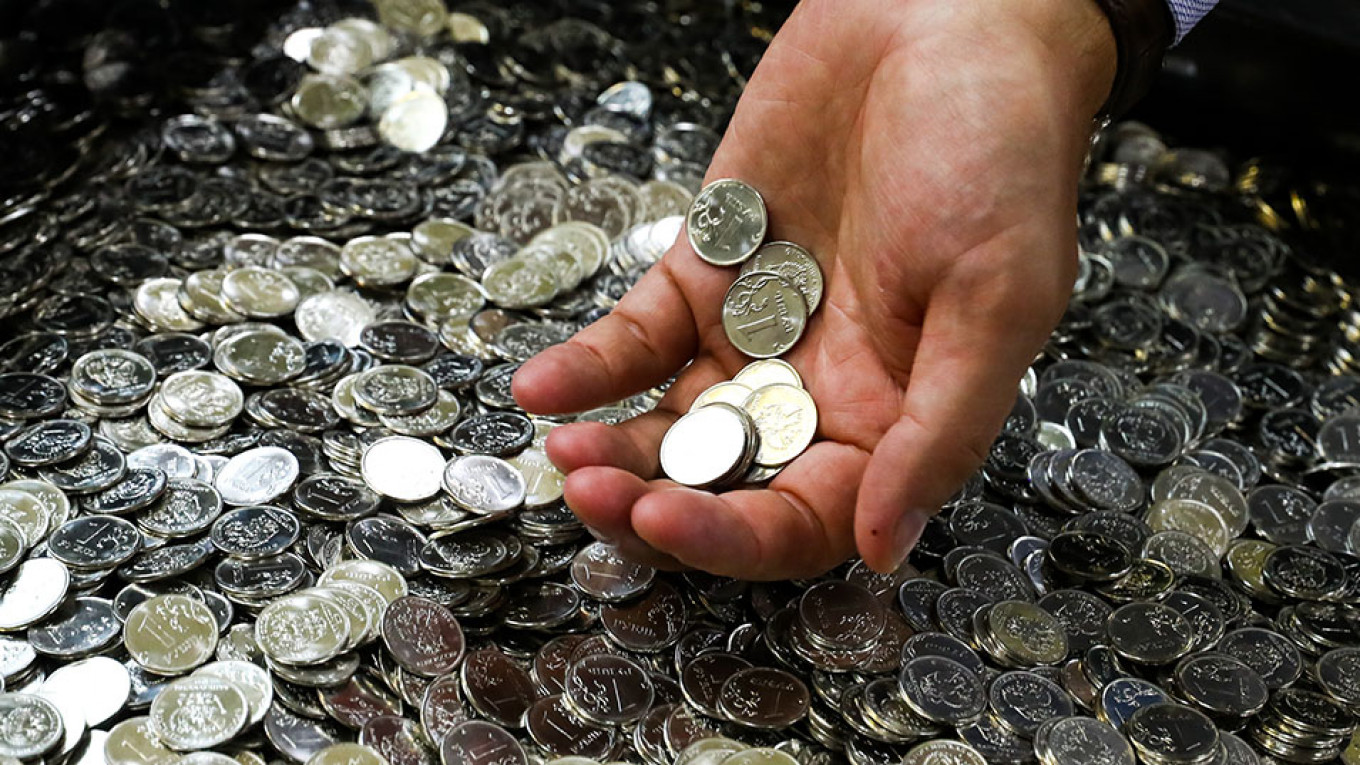The International Monetary Fund (IMF) advised the Russian government not to spend the money in its National Welfare Fund (NWF) and to invest it into “secure foreign assets” instead. The Russian Finance Ministry is intending to spend some of the money in the rainy day fund on its 12 National Projects.
Russia’s total gross international reserves (GIR) are now just shy of the Central Bank of Russia (CBR) unofficial target of $500 billion, having reached $491.1 billion at the end of April. The CBR reports the GIR levels with a month’s delay so as not to interfere with markets. Gold accounted for just over $90 billion of the total and continues to increase its share of the basket.
The NWF is currently receiving super-profits from the sale of oil — revenues earned when the price of Urals crude is above $41.6 per barrel are funneled into the fund, according to a budget rule introduced in 2019.

The NWF currently holds 3.8 trillion rubles, or 3.6 percent of GDP. According to the budget code, after the liquid part — excluding investments already made — of the NWF reaches 7 percent of GDP, the money in the fund can be spent. The Finance Ministry predicts that this will happen by the end of 2019, when the NWF will accumulate 7.9 trillion rubles.
The Russian authorities have not yet decided on what to spend the money. Economic Development Minister Maxim Oreshkin proposed directing money to lend to buyers of Russian products abroad, concessional financing when setting up production for Russian companies abroad, as well as concessional financing when creating service centres that will serve Russian products in third-country markets.
Those with interests in oil have offered a simpler solution — spend some of the funds in the NWF on compensating them for their losses from the completion of the tax manoeuvre in the oil industry.
This article is from bne IntelliNews Russia monthly country report.
See a sample here.
Sign up for a one-month trial here.
Contact us here.
A Message from The Moscow Times:
Dear readers,
We are facing unprecedented challenges. Russia's Prosecutor General's Office has designated The Moscow Times as an "undesirable" organization, criminalizing our work and putting our staff at risk of prosecution. This follows our earlier unjust labeling as a "foreign agent."
These actions are direct attempts to silence independent journalism in Russia. The authorities claim our work "discredits the decisions of the Russian leadership." We see things differently: we strive to provide accurate, unbiased reporting on Russia.
We, the journalists of The Moscow Times, refuse to be silenced. But to continue our work, we need your help.
Your support, no matter how small, makes a world of difference. If you can, please support us monthly starting from just $2. It's quick to set up, and every contribution makes a significant impact.
By supporting The Moscow Times, you're defending open, independent journalism in the face of repression. Thank you for standing with us.
Remind me later.






